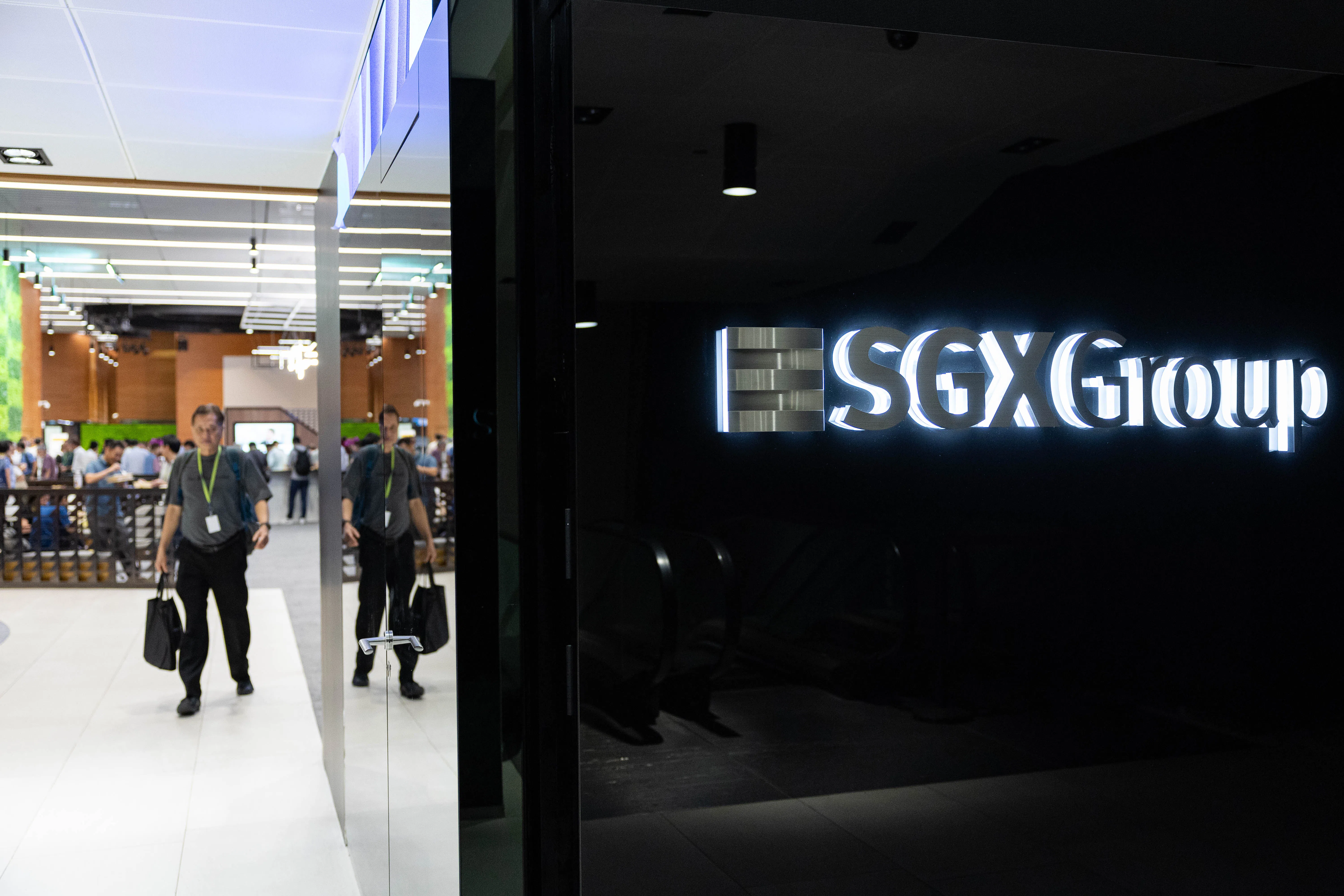SINGAPORE shares closed lower for the third consecutive day on Wednesday (Feb 5), after US President Donald Trump announced tariffs on China – the world’s second-largest economy and a key trading partner of Singapore.
The Republic’s blue-chip barometer, the Straits Times Index (STI), slid 0.2 per cent or 7.64 points to 3,815.37, despite opening 0.2 per cent higher.
Its top four constituent stocks all closed lower. DBS and UOB each slipped 0.2 per cent to S$44.32 and S$37.20, respectively. OCBC logged a steeper decline of 0.5 per cent to S$17.17.
Singtel, the STI counter that ranks after the banks in terms of weighting, fell 0.6 per cent or S$0.02 to S$3.21.
Genting Singapore, the worst performing STI counter, was down 2 per cent or S$0.015 at S$0.74.
Across the broader market, gainers trailed decliners 247 to 260, as 1.3 billion securities worth S$1 billion were traded.
BT in your inbox
Start and end each day with the latest news stories and analyses delivered straight to your inbox.
Frasers Logistics & Commercial Trust rose S$0.01 or 1.1 per cent to S$0.89. This came after it updated on Tuesday that it leased 175,000 square metres of space across its portfolio in the first quarter ended Dec 31, with a portfolio occupancy rate of 94.3 per cent.
DBS Group Research said that the trust has benefited from higher rental rates, an almost full occupancy for its logistics and industrial portfolio, and lease renewal with the largest tenant for 12 years with 3 per cent annual rental escalations.
Stephen Innes, managing partner at SPI Asset Management, said: “Markets may have initially cheered Washington’s pause on North American tariffs, but the real battle is unfolding in Asia, where tensions remain at a rolling boil.”
The opening salvos in this latest trade war make one thing clear, he added, Chinese President Xi Jinping is playing a different game this time.
Unlike Trump’s first term, when Beijing met fire with fire, China is now treading cautiously, knowing its economy is walking a tightrope.
The US could slam tariffs to their highest levels in a century if its trade partners – especially China – do not play ball, sending global economy into a tailspin, igniting US inflation, and setting off supply chain shockwaves with consequences no algorithm or macro model can fully predict, Innes pointed out.



